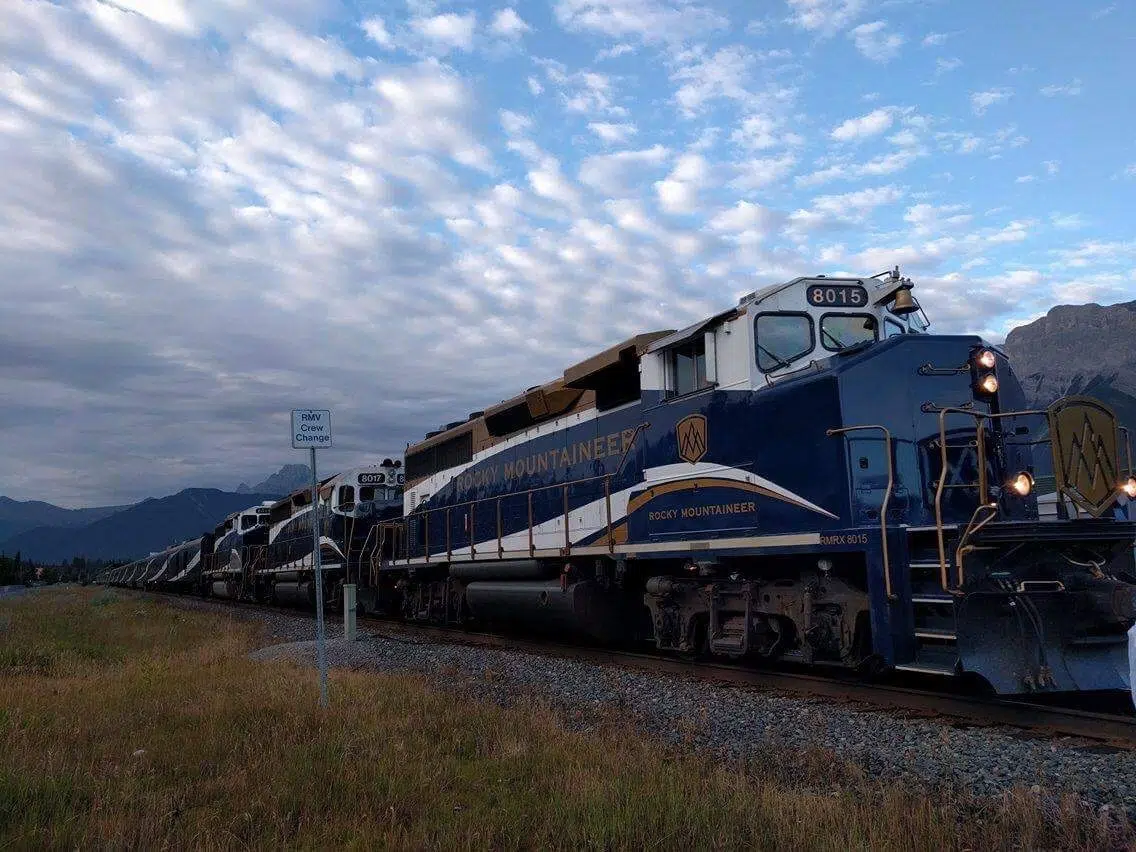
A Rocky Mountaineer train. (Photo via Rocky Mountaineer)
Company figures show nearly 5,000 Rocky Mountaineer passengers were impacted by B.C.’s short-lived ban on tourism-related travel to Kamloops and five other Interior communities last month.
But speaking on NL Mornings, Rocky Mountaineer President and CEO, Dave McKenna, says passengers were understanding given the circumstances in the north Shuswap and Kelowna.
“But it did affect us and there were a couple of days where we weren’t able to operate one of the trains, and then we rallied around it,” McKenna said. “I wanted to give a shout out to other communities that stepped in to try to help out like Salmon Arm and Revelstoke and even Sun Peaks.”
“Although we were prepared for the worst, it certainly was a much better case scenario that ended up. The guests were super understanding of the fact that we potentially needed all those hotel rooms in the city of Kamloops to embrace potential evacuees.”
McKenna says once the restrictions were lifted, it took Rocky Mountaineer a couple of days to get back to full operations in the Kamloops area.
“Even at certain points, to avoid going through some of the affected communities, we did bus movements instead of the trains as well,” McKenna said, noting its not an easy talk to redirect a train on short notice.
“So we had some points where we were mobilizing up to 20 to 30 motorcoaches to help our guests get across from Banff to Vancouver.”
The City of Kamloops is the mid-point overnight stop on two Rocky Mountaineer rail routes – First Passage to the West from Vancouver to Banff and Journey Through the Clouds from Vancouver to Jasper. It leads to an estimated economic spin-off of nearly $50 million in Kamloops in a normal year.
The Rainforest to Gold Rush route – which stops in Whistler and Quesnel – and the U.S.-based Rockies to the Red Rocks routes were not impacted by the restrictions.













